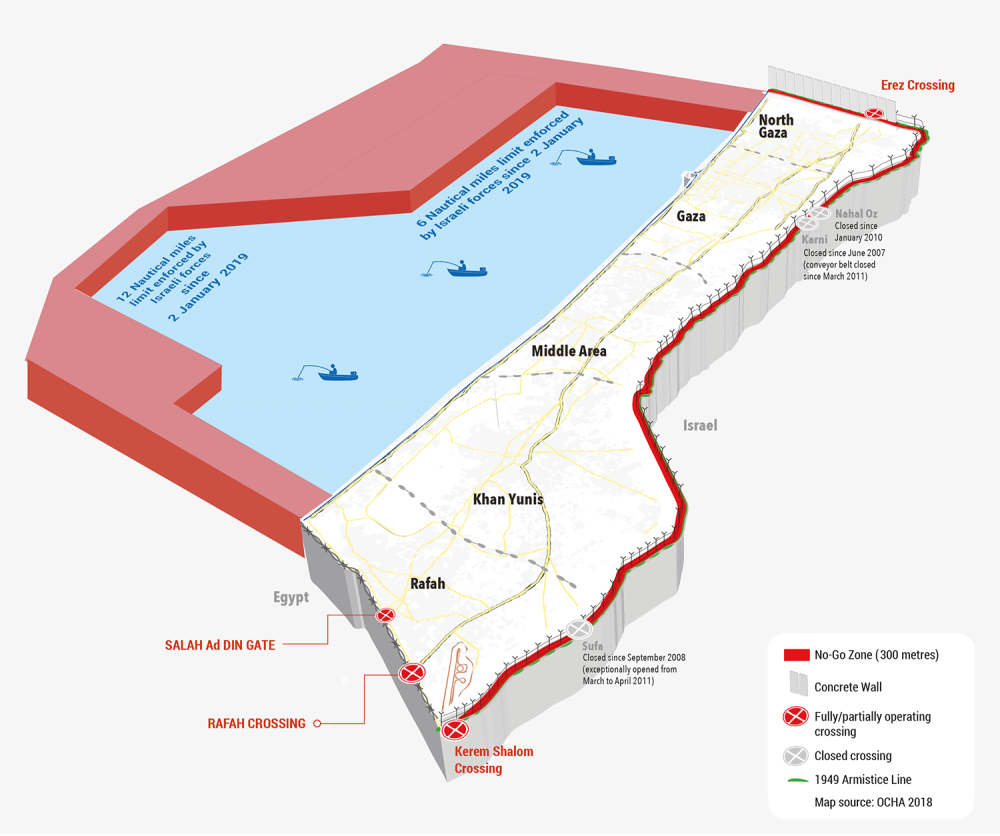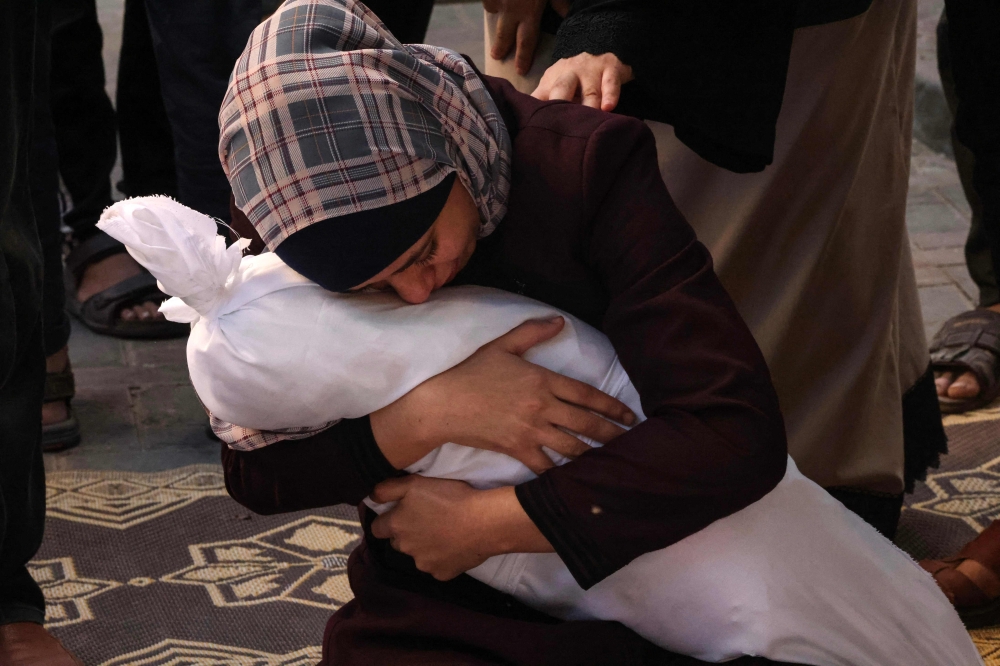OCTOBER 22 — If a picture tells a thousand stories, the map below tells why Israel is an occupier of the Gaza Strip.

The map clearly shows that Israel has “sufficient authority” and “effective control” over Gaza. It also shows a situation which factually amounts to an occupation. Therefore, the law of occupation applies — whether or not the occupation is considered lawful.
The duties of the occupying power are spelled out primarily in the 1907 Hague Regulations (Articles 42-56) and the Fourth Geneva Convention (GC IV, Articles 27-34 and 47-78), as well as in certain provisions of Additional Protocol I and customary international humanitarian law.
The population of occupied territory cannot be deprived of the protection afforded by international humanitarian law (GC IV, Article 47) while protected persons (civilians) can in no circumstances renounce their rights (GC IV, Article 8).
The main rules of the law of occupation state, among others, as follows:
- The occupying power must take measures to restore and ensure, as far as possible, public order and safety.
- To the fullest extent of the means available to it, the occupying power must ensure sufficient hygiene and public health standards, as well as the provision of food and medical care to the population under occupation.
- Collective or individual forcible transfers of population from and within the occupied territory are prohibited.
- Transfers of the civilian population of the occupying power into the occupied territory, regardless whether forcible or voluntary, are prohibited.
- Collective punishment is prohibited.
- Reprisals against protected persons or their property are prohibited.
Accordingly —
1. As an occupying power, Israel may not be able to plead self-defence.
2. Israel’s blockade of Gaza is collective punishment and a war crime.
Amnesty International (AI) has already documented unlawful Israeli attacks on Gaza, which include indiscriminate attacks causing mass civilian casualties and which must be investigated as war crimes.
AI spoke to survivors and eyewitnesses, analysed satellite imagery, and verified photos and videos to investigate air bombardments carried out by Israeli forces between 7 and 12 October, which caused horrific destruction, and in some cases wiped out entire families.
Israeli attacks violated international humanitarian law, including by failing to take feasible precautions to spare civilians, or by carrying out indiscriminate attacks that failed to distinguish between civilians and military objectives, or by carrying out attacks that may have been directed against civilian objects.

“In their stated intent to use all means to destroy Hamas, Israeli forces have shown a shocking disregard for civilian lives. They have pulverised street after street of residential buildings killing civilians on a mass scale and destroying essential infrastructure, while new restrictions mean Gaza is fast running out of water, medicine, fuel and electricity. Testimonies from eyewitnesses and survivors highlighted, again and again, how Israeli attacks decimated Palestinian families, causing such destruction that surviving relatives have little but rubble to remember their loved ones by,” said Agnès Callamard, Amnesty International’s Secretary General.
Gaza’s civilians are the victims.
Their welfare is of our concern. They aren’t heavy, they’re our brothers and sisters. (Adopted from “He Ain’t Heavy, He’s My Brother”, song by The Hollies)
* This is the personal opinion of the writer or publication and does not necessarily represent the views of Malay Mail.





















